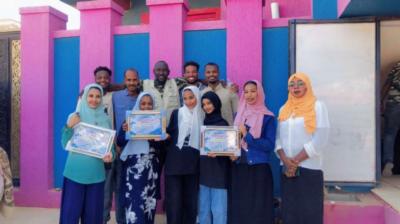Politics and security in West Africa: Ivory Coast, Senegal and Mali
Several countries in West Africa are currently experiencing a rise in security concerns related to election violence, coup d'états and threats of terrorism. In the Ivory Coast, the presidential election held on the 31st October was boycotted by the opposition. This brought back memories of civil war and election violence. In Mali, on the 18th August, members of the Malian Armed Forces stormed the Soundiata military base before heading to the capital. In Bamako they forced President Ibrahim Boubacar Keïta to resign and dissolve the parliament. This was Mali's second coup d'état in the past eight years.
Both Mali and the Ivory Coast are facing tense political and security situations with internal Islamist threats. Senegal, however, seems to stand out as a more politically stable country, which has yet to experience Islamist terrorism.
In this seminar Carmeliza Rosario (UiB/CMI) in conversation with Stig Jarle Hansen (NMBU), Vegard Vibe (UiB) and Pauline Lemaire (CMI) hope to shed light on the political and security contexts in West Africa. How have the elections in the Ivory Coast played out? Why has Senegal not experienced the same threats and destabilisation as the Ivory Coast and Mali? How long will Senegal remain immune?
Stig Jarle Hansen is a Professor at NMBU. He is interested in organised crime, religion and politics, including religious terror. He has conducted research mainly in the Red Sea region, Yemen, Somalia, Eritrea, Ethiopia and Kenya. His is the author of the book Horn, Sahel, and Rift: Fault-Lines of the African Jihad.
Pauline Lemaire is a doctoral candidate at the Department of Comparative Politics at UiB and a researcher at CMI. She is investigating the role played by social media in post-conflict African countries. Previously, she has worked as a senior analyst focusing on politics and security in West Africa.
Vegard Vibe is a PhD candidate at the Department of Comparative Politics at UiB. His research focuses on human rights, particularly the politicisation of LGBT-rights in Senegal, and more broadly in West Africa.
Carmeliza Rosario is a social anthropologist and coordinator at the Global Challenges at UiB. She researches poverty, inequality, vulnerability and human rights in Mozambique. Since northern Mozambique is facing a fresh Islamist insurgence, she is also interested in local and global dynamics of conflicts, with emphasis on exclusion and inequality.








